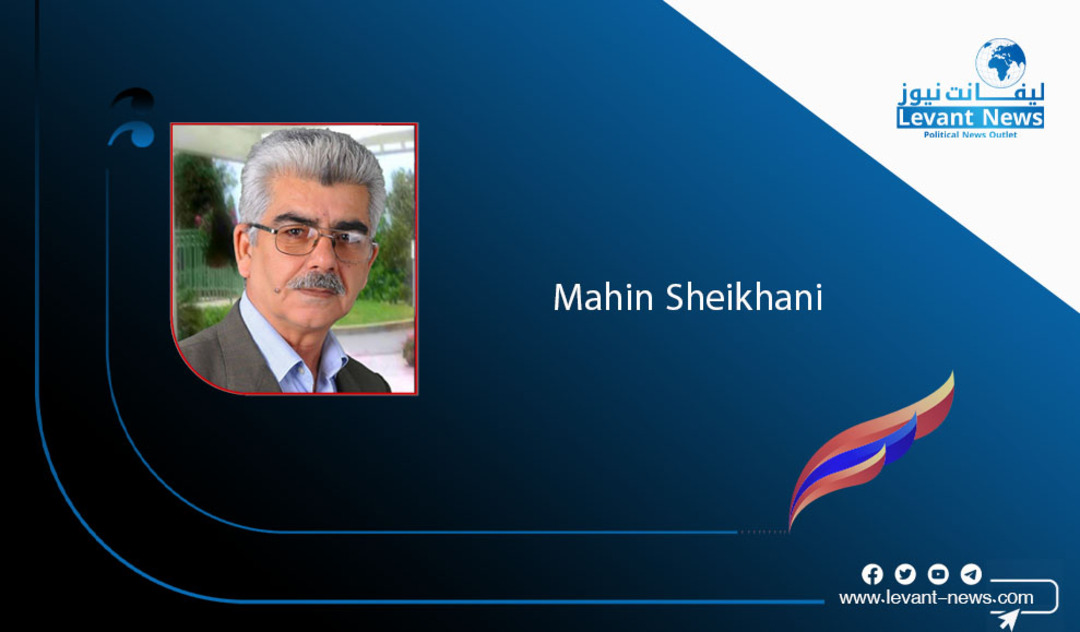-
Kurdistan Between Regional Complexities and Geopolitical Shifts
-
A Reflection on the Activity of the Kurdistan Democratic Party and Its Role in Current Transformations

Amid rapid regional changes, the Kurdistan Democratic Party (KDP), led by its active leadership and political institutions, appears to be moving with a calm yet profound dynamism that combines political realism and nationalist vision—balancing regional openness with a firm commitment to national constants. From Davos summits to Baghdad conferences, from Paris to Tehran, and from Ankara to Qamishli, this ongoing activity symbolizes a live translation of a national responsibility that the party pursues tirelessly, leveraging its extensive relationships and accumulated experience to serve the Kurdish cause in Iraq, Syria, and the broader region.
Nechirvan Barzani… Advanced Diplomacy at a Critical Juncture
Recently, Nechirvan Barzani, President of the Kurdistan Region, has exhibited notable foreign activity reflective of the KDP’s approach based on moderation and openness. His participation in the recent Arab summit, official visits to Tehran, and persistent diplomatic movements across Europe—particularly strong ties with Paris—demonstrate a persistent effort to reframe the Kurdish issue within a balanced political and diplomatic context.
His latest visit to Iran, at the invitation of the Iranian president, marked a significant milestone in repositioning the Region within the complex geographic fabric of the Middle East. Instead of opting for isolation or escalation, the KDP’s policy of “opening windows, not closing doors” aims to stabilize the region and reinforce its role as a balancing center rather than a source of conflict.
Diplomacy of the Bridge: Baghdad and the Central-Region Relationship
In parallel with his regional engagements, President Nechirvan Barzani responded to an official invitation to participate in a strategic conference held in Baghdad. This engagement was a symbolic yet effective diplomatic step that underscores the Kurdistan Region’s commitment to working within Iraq’s federal framework while maintaining its constitutional autonomy. Beyond protocol, this move embodies the KDP’s policy of building bridges of cooperation between Baghdad and Erbil and reinforcing the principle of political partnership—rather than dependency—at a time when Iraq’s political process critically needs responsible parties prioritizing national interests over narrow political calculations.
France and Europe… An Unassailable Support Base
From Paris, which he visited multiple times, to Brussels and Davos, where he met with French President Emmanuel Macron and U.S. President Donald Trump, Nechirvan Barzani has sought to enhance Kurdistan’s presence on the international stage. These relationships are not mere diplomatic embellishments but strategic investments in supporting the Kurdish experience and engaging the international community in its protection and development.
Masroor Barzani… Stability and Development as a Priority
Meanwhile, the Kurdistan Regional Government (KRG), led by Prime Minister Masrour Barzani, continues rigorous internal efforts to ensure security and financial stability while confronting service and political challenges. This parallel course reflects an internal dimension of the KDP’s policies that integrate external diplomacy with internal reforms.
President Massoud Barzani’s Message to Syrian Kurds: Steady Support and Mature Initiative
In the context of the Syrian Kurdish arena’s political stagnation, President Massoud Barzani sent an official representative to Qamishli, transmitting a message of solidarity to the Kurdish people in Western Kurdistan. This step, an extension of Barzani’s historic positions, carries symbolic weight and affirms that Iraqi Kurds do not see themselves isolated from their Syrian Kurdistan siblings—on the contrary, they seek to bridge perspectives and foster unified stances.
Turkey… The Difficult Balance and a Possible Opportunity
The leadership of the KDP maintains a cautious yet solid relationship with Turkey based on mutual interests and security-economic understandings. Notably, the historic visit of a “Dahm” delegation that met President Masoud Barzani—led by PKK leader Abdullah Öcalan—signified a stark call for reconciliation between the Kurdish and Turkish peoples, urging a move away from armed conflict toward democratic struggle.
This message, delivered during a sensitive political moment and through the open channel of trust with Barzani, gained prominence in light of the PKK’s recent announcement to end armed activity during its 12th congress. It harkens back to that foresighted meeting, emphasizing its role as a strategic vision towards a peaceful resolution of the Kurdish issue in Turkey.
Lifting the Sanctions on Syria… A New Test of Shared Vision
The sudden shift in the international and Arab stance regarding the Assad regime, marked by the gradual easing of sanctions, presents a historic opportunity for Kurdish parties, notably those within the Syrian Democratic Council (SDC), to reconfigure their strategy and engage in a comprehensive national project that offers genuine partnership for the Kurds.
As challenges continue to grow—ranging from poverty and unemployment to security threats and regional shifts—the strategy rooted in partnership, openness, and pragmatic action remains the most effective option to ensure Kurdish rights, stabilize Kurdistan, and maintain the Kurdish people’s position as a nation striving for freedom and peace amid turbulent geopolitical landscapes.
Levant: Mahin Shekhani
You May Also Like
Popular Posts
Caricature
opinion
Report
ads
Newsletter
Subscribe to our mailing list to get the new updates!




















